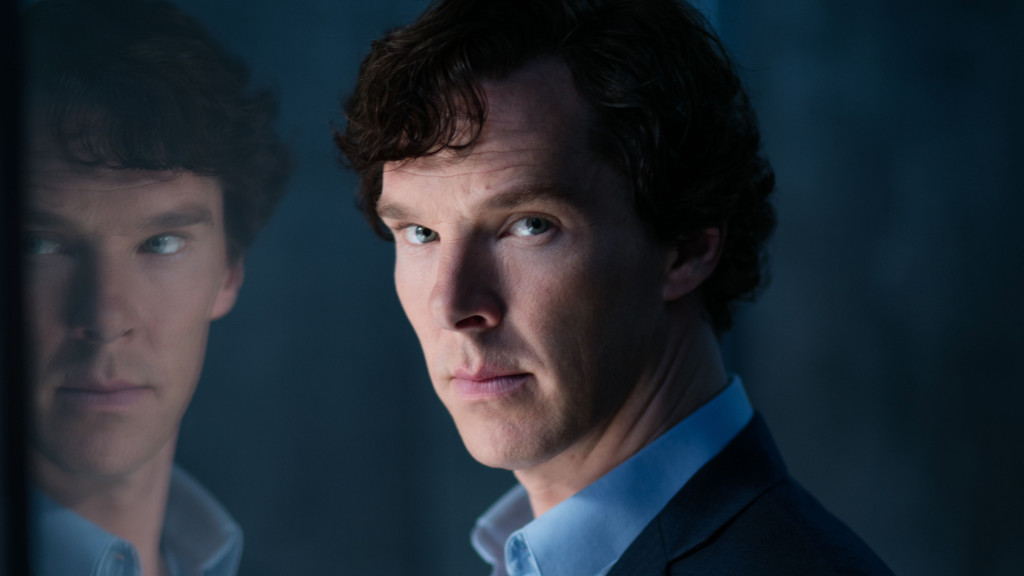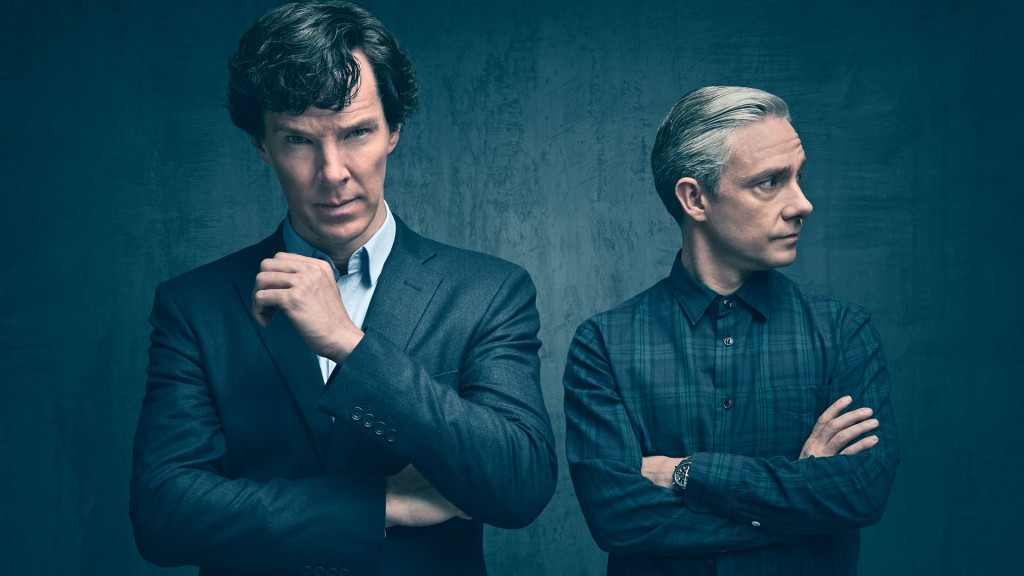The Fourth Season of Sherlock comes to a close with The Final Problem, an episode that seems like it belongs in an entirely different series.
Likes
That scene at the end when everyone is rebuilding 221b Baker Street.
Dislikes
Basically, everything else.
First off, those of you reading my unexpected series of reviews this season know that my theories on what might be happening turned out to be wrong. This, I think, is good news. A satisfactory “It Was All a Dream” season is all but unattainable in TV writing, and I think a failed execution of that would have been far worse than what we got. But that doesn’t mean what we got was any good.

At its core, Sherlock should be a show about solving mysteries. The characters and visuals are what make it unique, but the framework of the show is important as well. I didn’t have a major issue with The Six Thatchers taking on a “Spy Thriller” vibe at times, but I sure noticed it. The Final Problem felt more like a Saw-pastiche, like a “Torture-Porn” without the gore. The tone was entirely off for this series, and the stakes felt forced and frustrating.
The addition of Eurus Holmes brought nothing to the story. Her motivation, as someone so ingenious as to be violently sociopathic, is an insult. It is amateur character creation, like something some hack would craft for their fanfic novel. At the end she seems to declare that loneliness was her motivation for killing a child, but she wasn’t incarcerated until after she did that heinous deed.
Where was the well? Why did Holmes’ parents not check the well when the child went missing and when “Drowned Redbeard” was a clue? As someone on reddit said, “Even Lassie could point them to a well.”
John Watson’s adultery was never addressed. Mary Watson was an afterthought in the final minutes of the episode, and Moriarty was set dressing.
We were given a potentially powerful scene where Sherlock needed to get an “I Love You” from Molly Hooper, but can only do so by unfortunately hurting her. It would be powerful, alas, if not for the final moments when Molly is seen reentering 221b with smiles and with no time dedicated to the consequences of the earlier scene. Sure, Sherlock, Mycroft and Watson were all held hostage, and they could have told Molly that after being freed, and she could have smiled and said “Oh, no worries, I understand” while secretly still mending a broken heart – there COULD be some sort of resolution to that scene – but there wasn’t. It turned what could have been something truly emotional into something truly manipulative. In the end, Molly is in the same place she always is.
Moriarty, was set dressing. Let that sink in. It’s not as if his return was suggested only in this episode, which would have been a delightful tease before the “five years ago” subtitle popped up, but he was was a plot point since the end of last season. He was nothing but a prerecorded voice and a hand-wave for how Eurus could have setup anything she did in this episode.
And the airplane in peril that wasn’t. Ugh. Garbage. Manipulative garbage.
Finally, getting this strange backstory, this unwelcomed “Origin of Sherlock Holmes” is deeply upsetting. Don’t get me wrong, I am comfortable seeing people reinterpret a character like Sherlock Holmes. What I didn’t care for was giving the BBC Sherlock this late-to-the-party inspiration in the form of a early childhood trauma brought on by not being smart enough and having a sibling that was too smart for her own good. It’s that same amateurish storytelling that allows “brilliant logic solving” to equate with “violent sociopath.” Not all characters benefit from melodramatic origin tales, and in fact it often robs them of agency. Sherlock did not set out to become the brilliant mind that he is, he had that fate thrust upon him by tragedy, just like every other hero we know.
Final Thoughts
Writing this actually put me in a worse mood than I was when I first saw the episode. There are just so many missed opportunities. So few Sherlock moments that make the series great.
In the interest of fairness, I will say that the scene where Mycroft, Sherlock, and John time their jumps to save Mrs. Hudson was cool, right up until the hilarious explosion. Also, Mycroft and John dueling over who gets to die was touching, if not easily telegraphed.
I really don’t know what to say about this episode/season, other than that it was utterly forgettable, yet at the same time revolutionary to the framework of the series.
Still, I eagerly await more Sherlock and hope for a Season Five. Does that sound weird? Does it sound like Stockholm Syndrome? Well, the truth is that Sherlock is a fantastic show with a wonderful cast and some truly exceptional film-making – it just didn’t all come together for me this time around.
But hey, if you want a more thoughts on Sherlock, our friends over at the Atomic Junk Shop have been writing reviews of this season as well! John Trumbull‘s articles tend to be more informative than mine, especially with the Sherlock Holmes canon, so I definitely recommend checking them out!

